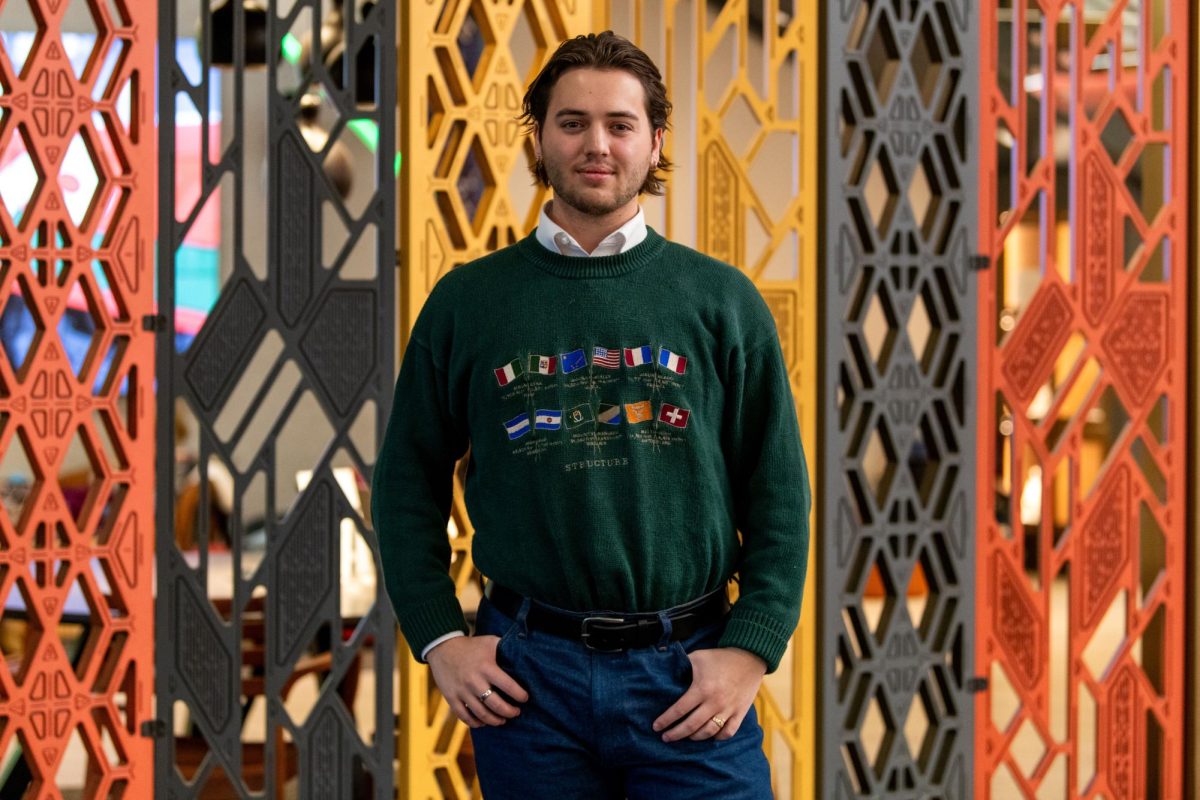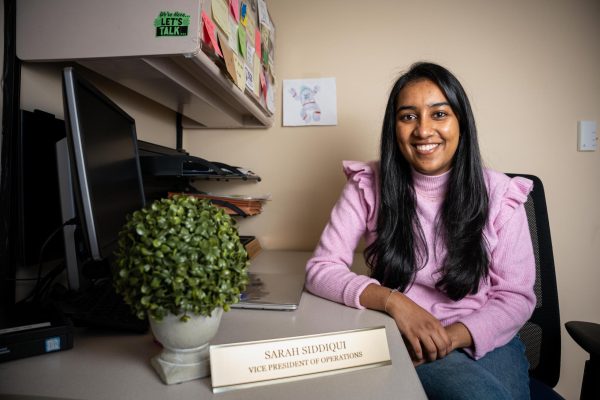Forum examines ways to peace in Middle East region
October 17, 2002
There may be a way to end the Palestinian and Israeli conflict, which has plagued the Middle… There may be a way to end the Palestinian and Israeli conflict, which has plagued the Middle East for decades. By looking to their “mutual interests,” the two groups can stop the violence.
But the two sides are still at odds about how to define such interests and obtain them fairly.
These were some of the comments made by Erez Kreisler, mayor of the Regional Council of the Misgav region of Galilee, who spoke alongside Maher and Rawda Awwad, two Palestinian exiles and peace activists currently living in Pittsburgh. The event, held Tuesday night, was a Center of Lifelong Learning-sponsored forum titled “Cultures in Conflict: Change and Dissolution.”
“What I’m trying to do is share with you are the facts and feelings of a leader in Israel in the time of a complex situation,” said Kreisler, who has been mayor of the region since 1996.
Kreisler said he hopes his home region of Misgav could provide an example for large-scale Israeli and Palestinian coexistence. He said Misgav is made up of 29 “community villages,” which he described as being something between a farming co-op and a city neighborhood.
Arabs are the majority in Misgav, he said, but the Israeli government is working to build “mutual industrial zones” to ease unemployment within the region, which would benefit both Israeli and Palestinian residents.
The Misgav region also has Arab and Israeli schools, where children can examine the issues both groups face and learn how to work through them constructively.
However, Kreisler said, “we should seek two states for two people.”
“There should be a political solution and soon,” Kreisler said, “a Palestinian state and a Jewish democratic state. It’s the only way for a win-win situation.”
Kreisler is opposed to the violence within his country and said he believed that most Israelis want to end the bloodshed, as do most Arabs, but radical groups stand in their way.
“The climate in Israel today motivates the radical groups, whether they are Jews or Arabs,” he said, “and rational people are caught in between.”
Maher Awwad, exiled from Israel since he was 14 years old, agreed with Kreisler that violence is not the answer, but he took issue with Kreisler’s vision of two states.
“You cannot have your cake and eat it too,” he said. “We have to compromise.”
This compromise must “make sense on both sides of the fence,” he said. The Palestinians, he argued, need to have a fair and reasonable place to live. He added that this would mean Israel would have to end their occupation.
“Occupation turns people into monsters on both sides,” he said. “You cannot expect us to accept an apartheid.”
Awwad said a CIA population release indicated that Jews are the majority in Israel by only 200,000 people. He also said one in two Gaza residents are under the age of 14 and four in nine residents of the West Bank are young children. Compare that to the fact that less than 20 percent of Israelis fall into this age group, he said, and it is clear these trend favor an increase in Palestinian population.
“How can you have a Jewish state when Jews are a minority?” he asked.
Awwad said a strong Palestinian leader would help to bring the situation to a peaceful and fruitful resolution, and that Yasser Arafat is no such leader. He said there are a number of well-educated Palestinians.
“If there were free, democratic elections, I wouldn’t vote for Yasser Arafat,” he said. “My people are better than that.”
Awwad placed the blame on Arafat’s influence on his followers, saying if the people saw how things really are, they would get rid of leaders like him. Unfortunately, he said, the attention Israel and the United States give Arafat galvanize his followers.
He also said the Palestinians don’t have a protected environment in which they could work on developing a lasting democracy, a situation that might improve if they were to receive help from the international community.
Radwa Awwad, Maher’s wife, echoed her husband’s sentiments of a peaceful end to the situation in Israel. She also read two poems, one by an Israeli woman, the other by a Palestinian woman, in order to give the crisis a human voice and provide a common ground between the two groups.
“To be pro-Israel, you have to be pro-Palestinian at this point, and to be pro-Palestinian you have to be pro-Israel,” she said. “We do not want to remain disenfranchised by the demons that have taken control of the political atmosphere.”







